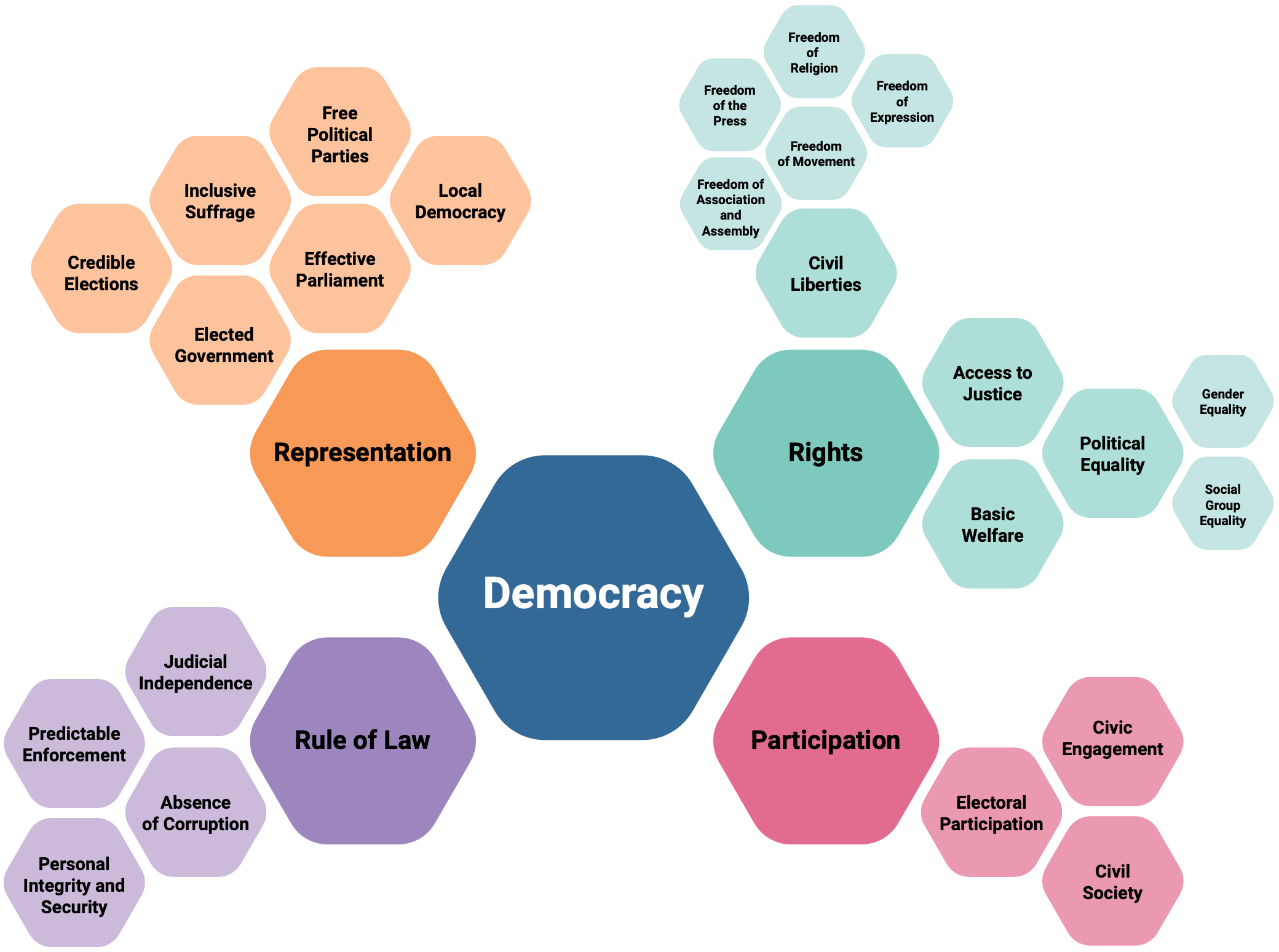
International IDEA is well known for policy-relevant knowledge production that draws on top-tier comparative research and the remarkable expertise of our global staff. The Global State of Democracy(GSoD) Report represents the flagship of this effort, and I am very pleased to present the 2023 edition of this report.
From the very beginning, International IDEA’s GSoD Initiative was designed with an emphasis on analytical detail and nuance. Both the geographic and the methodological scope are broad, reflecting the complexity of democracy. This year, we have continued to refine our approach, with two important changes.
First, we now rank countries within each of four restructured categories of democratic performance—Representation, Rights, Rule of Law, and Participation—rather than classifying regimes on an overall basis. (Figure P.1) This change prioritizes nuance by acknowledging that countries perform to different levels in different categories, and improves the specificity of the ensuing policy recommendations.

The Global State of Democracy conceptual framework
Note: For this report, the names of the four main categories of democratic performance and their factors are capitalized, when used as such.
Source
International IDEA, The Global State of Democracy Indices v7.1, 2023.
Second, this year’s GSoD Report draws on both the longstanding GSoD Indices, which measure democracy at country level across 28 concepts, as well as our new Democracy Tracker, which monitors democratic developments in 173 countries on a continuous basis. This unique combination of quantitative and qualitative information further finetunes our assessment, improving the accuracy and relevance of the findings presented in the report.
Democracy is a dynamic phenomenon, the specifics of which vary across countries and contexts.
There is no single clear threshold for democracy and countries improve or decline on different democratic factors over time. With this report we intend to pay more attention to democratic change rather than to democratic level; to the measurement of specific aspects of democracy rather than average democratic performance; and to the nuances of democratic practice rather than to general normative labels. In our view, trends and nuances are the stuff good policymaking to enhance democracy is made of. The new approach presented in this year’s report seeks to make our findings more policy relevant, even if it tells a more complex story. In doing so, it represents International IDEA’s latest contribution to a much-needed global conversation on the state and the fate of democracy.
